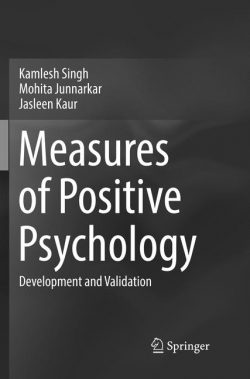This book provides practical information on how to use various psychotropic drugs in clinical practice, focusing on their mechanisms of action on receptors and enzymes in the brain. Divided into 11 chapters, it covers all main drug classes, with a dedicated chapter each on special populations and upcoming drugs. All the drugs discussed are presented in the same design format in order to facilitate rapid access to information. Specifically, each drug is individually divided into sections – its history and introduction, classification, pharmacological action, doses, drug interactions, indications, side effects and special populations. Only the essential facts about each drug have been included, so as to make the content concise and to avoid dilution of important information. To aid with review, key points are summarized at the end of each chapter.
Antidepressants .- Antipsychotics.- Anxiolytics and hypnotics.- Mood stabilizers.- Antiepileptics.- Sympathomimetics and dopamine receptor agonists (psycho stimulants).- Drugs used in dementia.- Antiparkinsonian drugs.- Drugs used in substance dependence.- Psychotropic drug use in special patient group.- Upcoming medicines in clinical psychopharmacology.
Dr Prakash B. Behere (MD, FNMS, FIIOPM), Vice-Chancellor & Professor of Psychiatry, D.Y. Patil University, Kolhapur, Maharashtra, graduated from the Government Medical College, Jabalpur and obtained his MD in Psychiatry from PGIMER, Chandigarh. He has previously served as Director of Research & Development and Professor/Head of the Department of Psychiatry at Jawaharlal Nehru Medical College, Wardha, as Director and Professor/Head of the Department of Psychiatry at MGIMS, Sewagram, Maharashtra and as a Reader at Banaras Hindi University, Varanasi. Having also worked as a Consultant (Locum) Child and Adolescent Psychiatrist at Raigmore Hospital, Inverness, Scotland, he has authored 180 journal publications and 51 book chapters, served as editor for eight books, and completed numerous WHO and ICMR projects.
He is the recipient of the Dr. B.C. Roy National Award for Socio Medical Relief and the Marfatia Award. He is a fellow of the National Academy of Medical Sciences and International Institute of Psychological Medicine. His many awards include the Dr. V. N. Bagadia Life Time achievement Award, Dr. D. L. N. Murthy Rao Oration Award, PPA Oration Award of the Indian Association of Child & Adolescent Mental Health and the N.N. De Oration Award of the Indian Association of Society Psychiatrists.
Dr Anweshak Das (MD) graduated from Jawaharlal Nehru Medical College, Wardha in 2010 and obtained his MD in Psychiatry from the same institution in 2015. He is the recipient of the Chancellors Gold Medal in MD Psychiatry Award from his university. He has authored six publications and 10 book chapters, and has served as an associate editor for one book. Currently he is a practicing Consultant Psychiatrist in Guwahati, Assam.
Dr Aniruddh P Behere completed his residency in Psychiatry at the SIU School of Medicine in Springfield, IL, USA in 2011 and subsequently went on to do a fellowship in Child and Adolescent Psychiatry, graduating from the same institution in 2013. He was awarded the Helen Beiser Award during his residency training and recognized for academic excellence upon the completion of his fellowship.
He is board certified in both Adult and Child & Adolescent Psychiatry. He is currently working at Helen Devos Children’s hospital, Grand Rapids, Michigan, with a focus on medically complex children. He has a keen interest in clinical research and has presented research papers at national meetings, published numerous papers in peer-reviewed journals and has written book chapters pertaining to mental health.
He has also participated in various community education activities promoting mental health in children. His areas of interest include cross-cultural psychiatry, complementary and alternative medicine, psychopharmacology and exploring ways to use technology to facilitate the diagnosis and treatment of psychiatric disorders.
This book provides practical information on how to use various psychotropic drugs in clinical practice, focusing on their mechanisms of action on receptors and enzymes in the brain. Divided into 11 chapters, it covers all main drug classes, with a dedicated chapter each on special populations and upcoming drugs. All the drugs discussed are presented in the same design format in order to facilitate rapid access to information. Specifically, each drug is individually divided into sections – its history and introduction, classification, pharmacological action, doses, drug interactions, indications, side effects and special populations. Only the essential facts about each drug have been included, so as to make the content concise and to avoid dilution of important information. To aid with review, key points are summarized at the end of each chapter.
Serves as a guidebook for mental healthcare professionals while evaluating the patient’s medication needs
Acts as a rapid desk reference guide for graduate students to learn essentials of psychopharmacology in a short time
Includes a chapter on special population such as children, adolescent, old age, pregnant women and nursing mother, and patients with liver and renal compromise state




